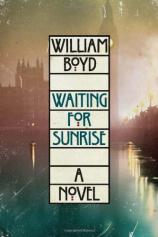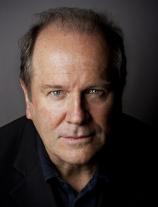Waiting for Sunrise
Review
Waiting for Sunrise
When readers pick up one of William Boyd’s books, they’ve come to expect a smart, skillfully plotted story that doesn’t sacrifice moral complexity to the demands of a fast-moving narrative. His 10th novel is no exception. Set in Vienna, London and Geneva as Europe slides from a world dominated by a 19th-century sensibility into the nightmare of World War One, it’s packed with seduction, betrayal and a teasingly intricate spy puzzle.
"Boyd...is beginning to stake a claim to some of the sophisticated territory explored by John le Carré and Graham Greene. He succeeds on every level here and leaves us looking forward to more of his savvy, satisfying fiction."
At the novel’s open in the summer of 1913, Lysander Rief is a 27-year-old British actor who has made his way to Vienna, seeking treatment for a sexual disorder that has imperiled his engagement to fellow actor Blanche Blondel. In this cosmopolitan city (one that another character describes as having a “river of sex” running beneath it), almost before he knows it, he plunges into an affair with a beautiful but unstable artist, a liaison that seems as much responsible for a cure as is his dubious therapy.
While still in Vienna, Rief is falsely charged with a crime, but evades trial with the help of a British diplomat and a naval officer. The debt to them for that rescue comes due when they enlist him to help track down a spy at the heart of the British war effort who has been reporting the movement of British men and material to the Germans. Disguised as a Swiss railway engineer, he embarks for Geneva, where he meets a ruthless female agent known as Bonfire and resorts to an impromptu dental procedure that’s as diabolical as anything since Laurence Olivier peered into Dustin Hoffman’s mouth in Marathon Man to gain access to the German agent’s code.
He is soon back in London, where he navigates the labyrinthine Directorate of Movements, the War Office department where his handlers believe the traitor has been carrying out his work. As in all spy novels, there’s a gulf between the surface reality of Boyd’s characters and the truth of their motivations and desires, and a plot resolution that’s satisfying while not succumbing to the itch for pyrotechnics or one last, spectacular (if improbable) twist.
Whether it’s a Vienna coffee shop or the drawing room of an elegant London flat, the novel teems with a wealth of period details that pay tribute to Boyd’s research and his deftness in deploying that information. In every instance --- from dress, to food, to the habitats of upper class Britons and their continental brethren --- Boyd seems to get it right. His talent isn’t limited to set pieces in these urbane surroundings, as he shows when he describes a nighttime patrol in France or the terrifying consequences of a Zeppelin bombing raid on London’s West End.
In all this, there’s a sense of radical disconnection between pre-war Europe, with one foot planted firmly in the 19th century, and the other in the modern world emerging tragically on the battlefields of France, captured here in Lysander’s musings:
“But he knew how fast the world was spinning, faster than ever. Time was on the move in this modern world, fast as a thoroughbred racehorse, galloping onwards, regardless of this war --- this war was just a consequence of that acceleration --- and everything was changing as a result, not just in the world around him but in human consciousness, also. Something old was going, and going fast, disappearing, and something different, something new, was inevitably taking its place.”
Boyd best displays his skills as a literary novelist in portraying Lysander’s transformation from a self-indulgent idler into a battle-hardened spy. “The view backward showed you all the twists and turns your life had taken, all the contingencies and chances, the random elements of good luck and bad luck that made up one person’s existence,” Lysander reflects. And by the novel’s end, he emerges from the complications of his wartime experience, understanding, at best, that “all we are left with are approximations, nuances, multitudes of plausible explanations.”
With novels like RESTLESS and WAITING FOR SUNRISE, Boyd (who has been hired to write a new James Bond novel scheduled for publication in the fall of 2013) is beginning to stake a claim to some of the sophisticated territory explored by John le Carré and Graham Greene. He succeeds on every level here and leaves us looking forward to more of his savvy, satisfying fiction.
Reviewed by Harvey Freedenberg on May 25, 2012
Waiting for Sunrise
- Publication Date: April 17, 2012
- Genres: Espionage, Fiction, Historical Fiction, Historical Thriller, Suspense, Thriller
- Hardcover: 368 pages
- Publisher: Harper
- ISBN-10: 0061876763
- ISBN-13: 9780061876769





